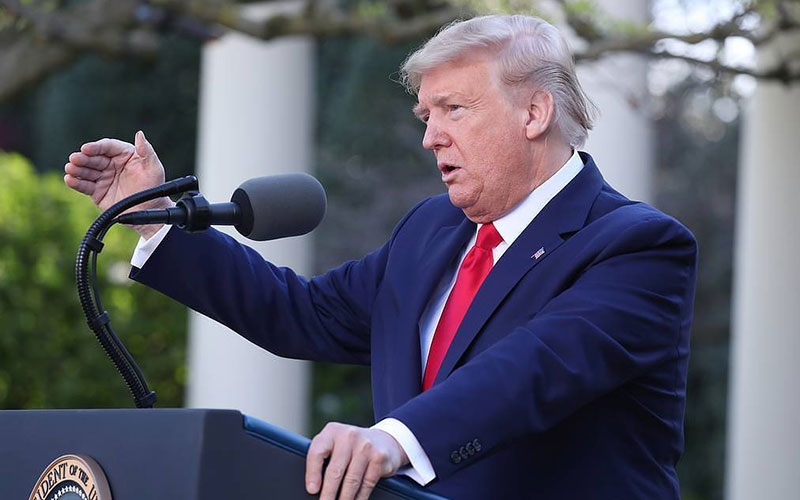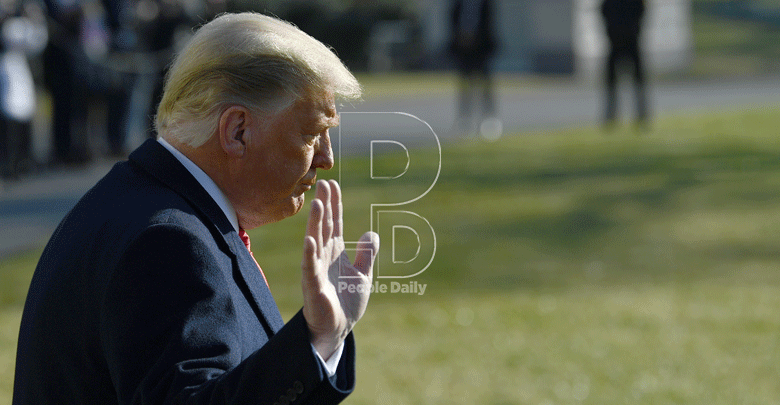Why Pence didn’t play ball on 25th Amendment

As part of spirited efforts to totally cripple President Donald Trump politically, the US House of Representatives on January 13 voted to impeach him a second time for ‘incitement of insurrection’.
This gave Trump the dubious distinction of being the first US President to go through the ordeal twice.
But Trump’s adversaries had plotted a fatal blow. On the day after the insurrection on the US Capitol on January 6, Democratic Senator Chuck Schumer called on Vice President (VP) Mike Pence, to invoke the 25th Amendment and remove Trump from office.
Also known as the Disability Clause, this statute replaces the President with his or her VP in case of the former’s removal, resignation, death or is otherwise incapable of performing the functions of his office.
The House approved a resolution that opened the way for Pence to invoke the 25th Amendment, failure to which it would proceed with the impeachment proceedings.
But Pence had already written to House Speaker Nancy Pelosi declining the opportunity, stating that “he did not believe that such a course of action is in the best interest of our Nation or consistent with our Constitution.”
In retrospect, the unheeded call to Pence to assume the presidency in an apparent constitutional coup, would have thrown him into deep uncharted waters, since Trump cannot give up power on his own volition.
The VP would have had to pursue application of the amendment either independently or in consultation with the Cabinet, options that were not viable amid the current partisanship in US politics.
While impeaching Trump was a foregone conclusion, expecting Pence to ‘betray’ his boss was overstretching it.
First, backing the 25th Amendment would go against Pence’s strong Christian faith.
Dubious distinction
The VP has a long reputation as a ‘born-again, evangelical Catholic’ and has described himself as “a Christian, a conservative and a Republican, in that order.”
It is this background that made him popular both as Indiana governor and Congressman, which endeared the duo to the influential evangelical Christians and other conservatives in the 2016 presidential elections.
Therefore, to be seen as backstabbing or crucifying Trump, regardless of the fact that it would be a wise move in the current circumstances, could have eroded the respect that has formed and sustained the foundation of his solid political career.
He could be viewing Trump as a victim of persecution because of his beliefs, even if the latter are not necessarily religious.
Secondly, Pence’s colleagues forgot the fact that he is Trump’s political bedfellow with similar Republican ideologies.
Therefore, the VP could not have gone against the values that hold the party together.
Such an action would split the party, dealing a fatal blow to its stability amid the increasing turmoil in US politics.
Thirdly, Pence could have been avoiding to bear the dubious distinction of being the first VP to invoke the 25th Amendment.
The action would have made him the undertaker of Trump’s political demise. The action could also be seen as an admission that their administration failed.
Fourth has to do with a combination of all the above factors. What sort of legacy would Pence leave from such an unprecedented action?
It is something that goes against his temperament, character and personality. It requires someone with an extreme ‘I don’t care’ attitude, not Pence’s gentleman demeanour.
While invoking the 25th Amendment would have made him a hero of the half that did not vote for Trump, it would make him a pariah within his own social and political circles, an unenviable dilemma extremely difficult to wriggle out of in the current politically charged environment. — The writer is an international affairs columnist











